In 2025, tech-forward organizations rely on data lineage tools to track the journey of data to understand its origin, transformations, and end use. These tools enhance governance, streamline troubleshooting, and support compliance. Below is an up-to-date, curated mix of commercial platforms and open-source projects that represent the current best-in-class for data lineage capability.
What are the benefits of data lineage tools?
Data lineage tools help growing tech companies track data from its source to every system it touches, providing essential visibility into how data moves, changes, and impacts decisions. As data volumes grow and pipelines become more complex, having a reliable way to trace and understand your data lifecycle is critical.
Here’s what makes data lineage tools worth the investment:
Spot errors faster and troubleshoot with confidence
When you can trace data back to its origin and see how it was transformed, it's easier to catch issues early. Lineage gives teams the context they need to fix problems quickly and prevent them from happening again.
Strengthen your data management process
Data lineage creates a clear record of where data came from and how it’s been handled. That transparency helps teams reduce inconsistencies, improve pipeline reliability, and refine internal data processes over time.
Unlock better insights from your data
With a full picture of how data flows across systems, data teams can identify dependencies, optimize transformations, and find new ways to connect datasets that were previously siloed.
Improve data visibility and stay compliant
Lineage tools make it easier to meet compliance and regulatory requirements by showing a complete audit trail. Teams can document data flows, track ownership, and build trust around how data is used across the business.
How do you choose the right data lineage tool for your company?
Choosing the right data lineage tool in 2025 means balancing automation, usability, and governance depth with your team’s existing workflows and technical maturity. Below are key factors to help guide your decision:
- Compatibility with your stack
Start by evaluating how well the tool integrates with your current data systems like databases, data lakes, orchestration tools (like Airflow or Dagster), and transformation layers (like dbt or Coalesce). Deep integration ensures lineage is accurate, automated, and actionable.
- Visualization capabilities
Look for a tool that offers clear, interactive visuals to trace data from source to destination. Good lineage should reveal dependencies across systems, transformations, and reports, not just table-to-table connections. Ideally, users should be able to explore lineage down to the column level.
- Automation and scalability
Manual lineage quickly becomes unsustainable. Prioritize tools that automatically detect and update lineage as changes occur across your stack, and that can handle increasing data volumes as your organization grows.
- Data quality and monitoring
The best lineage tools show where data flows and help surface issues at the same time. Choose a platform that highlights quality concerns directly within lineage graphs, and supports setting up monitors or alerts to catch issues before they impact downstream users.
- AI and natural language interfaces
If you're aiming for broader adoption beyond the data team, consider tools that support natural language querying. Being able to ask questions like “Where does this data come from?” or “What will break if I delete this column?” makes lineage more accessible to a wider audience.
- Compliance and audit readiness
If your company operates in a regulated industry, your lineage tool should offer features like audit trails, version control, and policy tagging. These are essential for demonstrating compliance and ensuring traceability during audits.
- User experience and governance fit
A good tool balances technical depth with usability. Think about who will be using the tool day-to-day and choose one that matches their level of comfort and responsibility with data.
- Total cost and operational overhead
Evaluate the cost of the tool relative to your team’s size, data volume, and support requirements. Open-source tools may offer flexibility but come with higher setup and maintenance demands, while enterprise platforms often provide more support and structure at a higher price point.
The best data lineage tool isn’t just the one with the most features. It’s the one that fits your architecture, governance needs, and how your team actually works. Taking the time to evaluate compatibility, usability, and long-term scalability will pay off in better data trust and smoother collaboration across the business.
List of top data lineage tools
Secoda
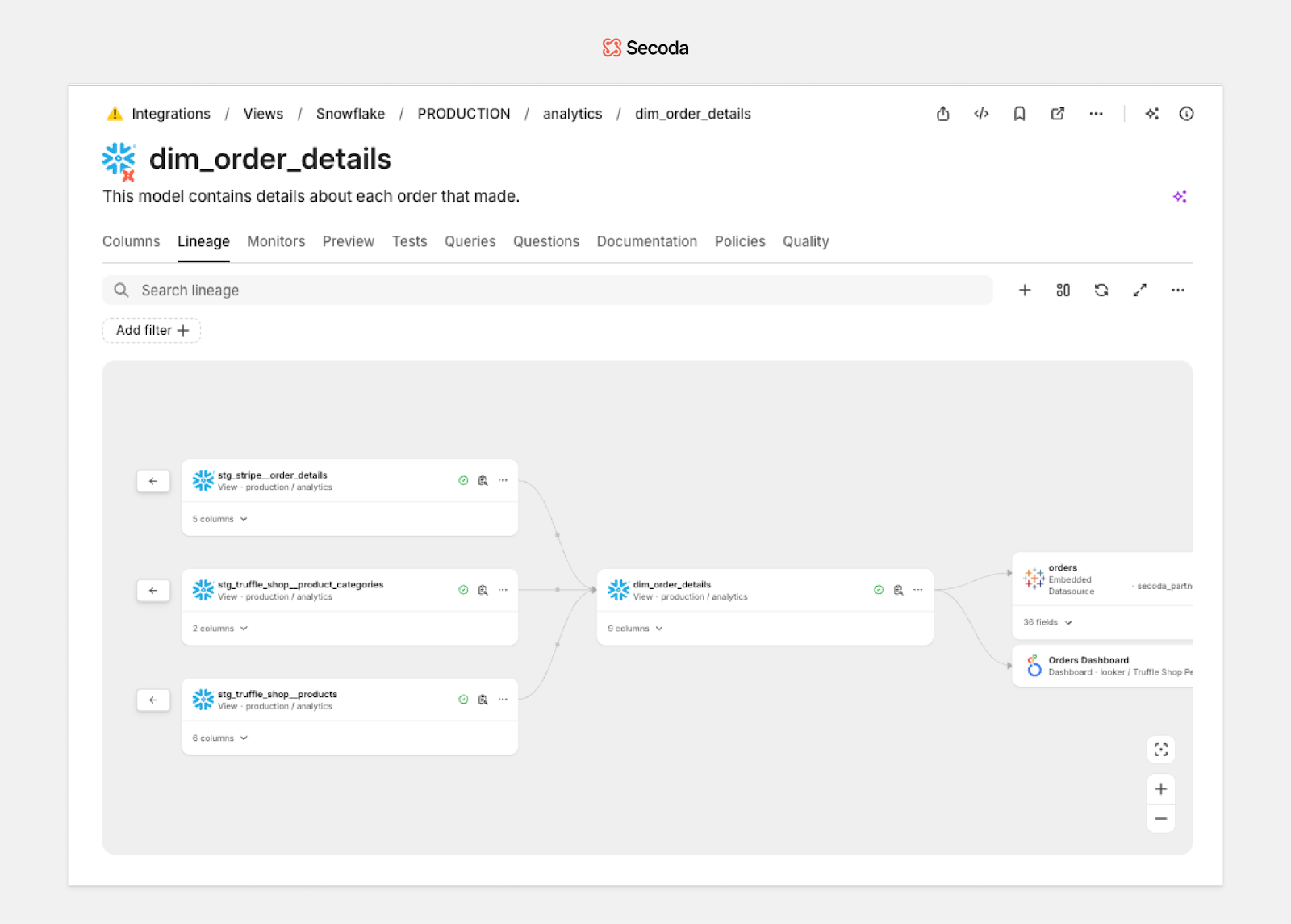
Secoda is an AI‑powered enterprise data governance and cataloging platform that offers automated, column‑level lineage, unified search, and metadata across 80+ integrated tools, delivered through a user‑friendly SaaS interface. It maps end‑to‑end data flows, provides impact analysis, and supports both technical and non‑technical users with intuitive visualizations and natural‑language querying.
In 2025, Secoda stands out for its AI-first design, making metadata discovery and governance fast, scalable, and context‑rich. It significantly reduces manual effort, improves data quality, and increases trust in how data is used across the organization.
Key capabilities of Secoda lineage:
- Automated end‑to‑end column-level lineage mapping
- One‑click impact analysis
- Schema change notifications
- Drag-and-drop visual lineage graph
- Scheduled lineage updates with no-code setup
- Interactive ERDs to visualize table relationships
- Data quality alerts surfaced directly in lineage views
- Full audit trails and version control
- Governance policies and tag-based workflows
Because Secoda combines lineage, monitoring, governance, documentation, and AI into a single platform, users can Secoda AI about lineage paths or impact analysis in a chat interface, getting instant answers without needing to comb through metadata manually. This all-in-one approach saves time, increases confidence in data, and enables faster decisions across the organization.
Informatica Metadata Manager
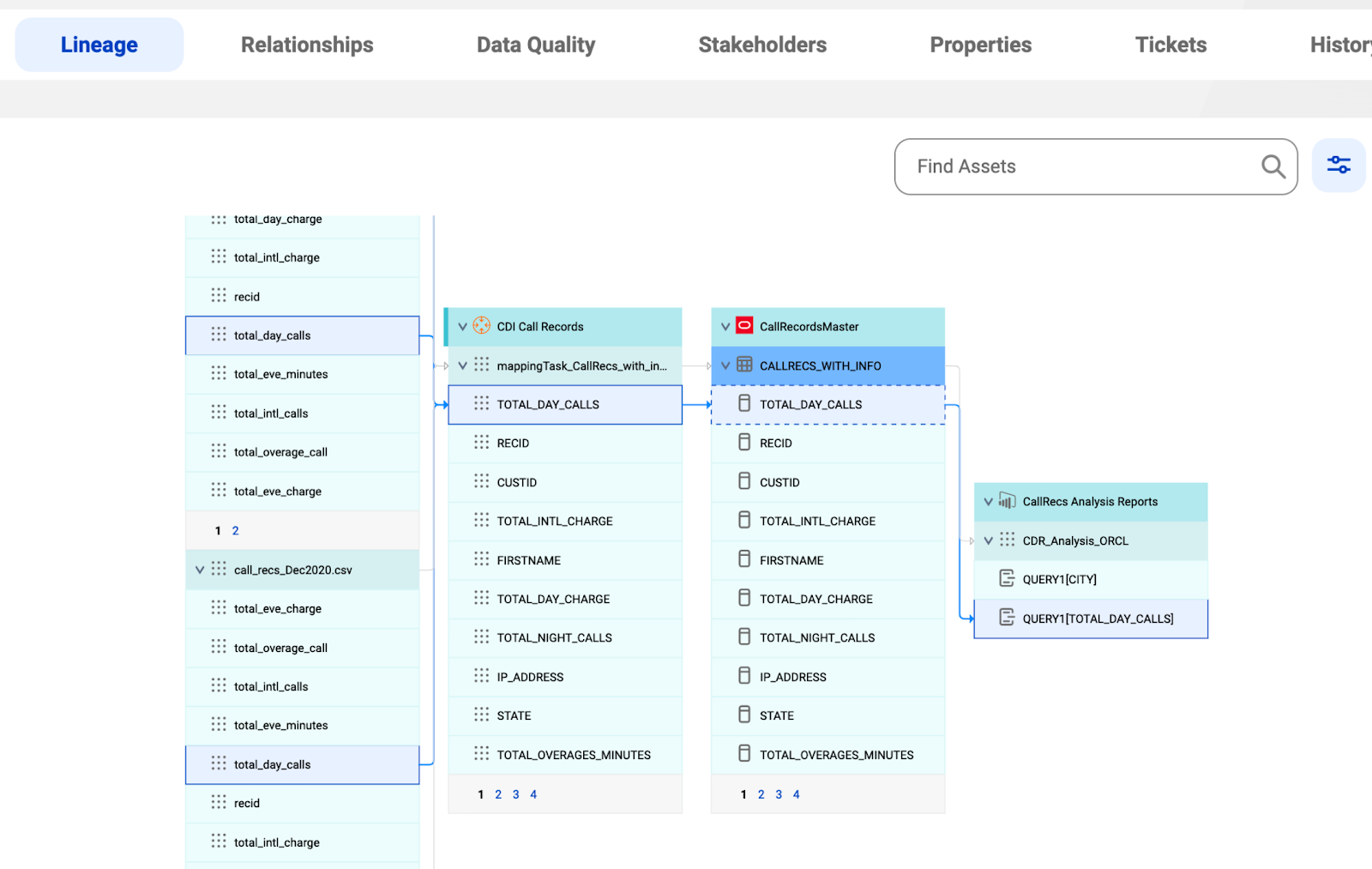
Informatica Metadata Manager is a comprehensive enterprise metadata management solution offering detailed lineage tracking, impact analysis, and integration across multi-cloud environments. It’s a go-to for organizations deeply invested in the Informatica ecosystem, with strong capabilities for compliance and governance.
Informatica is often seen as a heavyweight solution, best suited for large enterprises with dedicated data governance teams and less ideal for agile, fast-scaling companies. Its maturity and depth continue to make it a trusted choice for regulated industries in 2025.
Alation
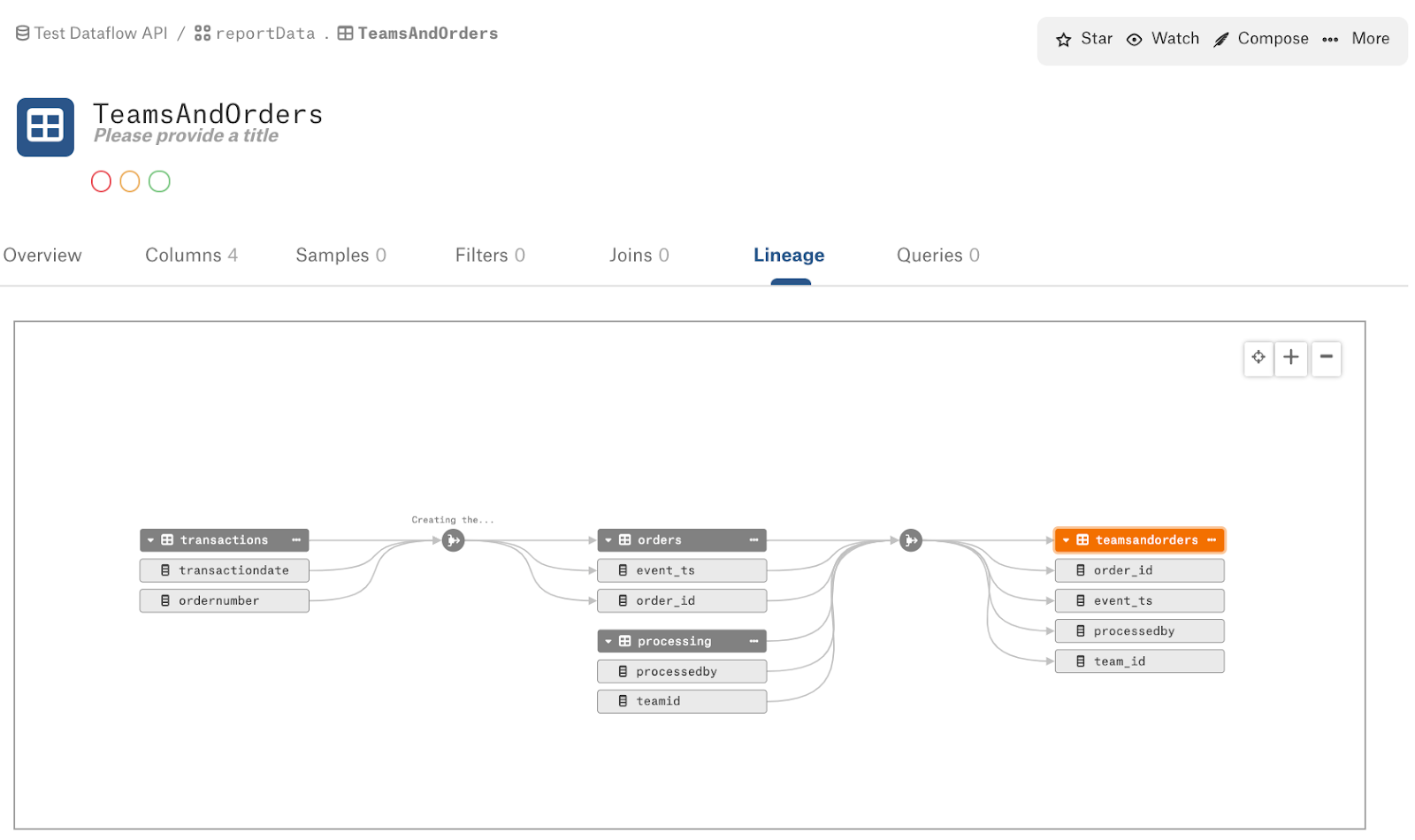
Alation is a metadata management and data catalog platform known for its powerful, interactive lineage visualizations and enterprise-grade governance features. It extracts lineage from SQL, ETL, and BI tools, using machine learning and manual input to enrich metadata.
While Alation remains a popular choice in 2025, especially for large, complex organizations, it’s often seen as a legacy platform that can feel heavyweight for smaller, fast-moving teams. Its “Business Lineage” feature, however, is widely praised for making data flows more accessible to business users.
Collibra
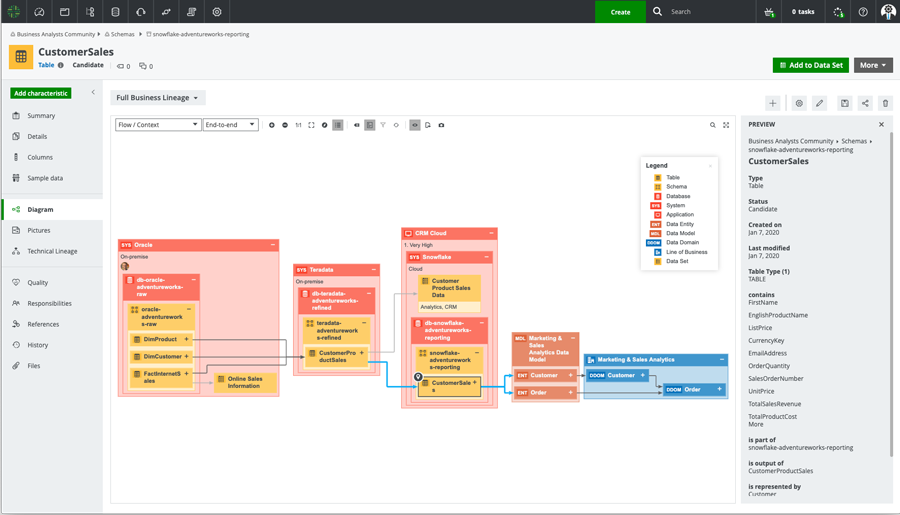
Collibra is a data governance platform that offers automated data lineage, governance workflows, and integration across cloud and on-prem environments. Its visual lineage diagrams and policy management tools are built to support enterprise-scale data stewardship and compliance. While Collibra is powerful, it’s often considered complex to implement and maintain, requiring significant setup and ongoing configuration to get full value. In 2025, it remains a top choice for highly regulated industries that prioritize centralized control and enterprise governance.
Lumada Data Catalog
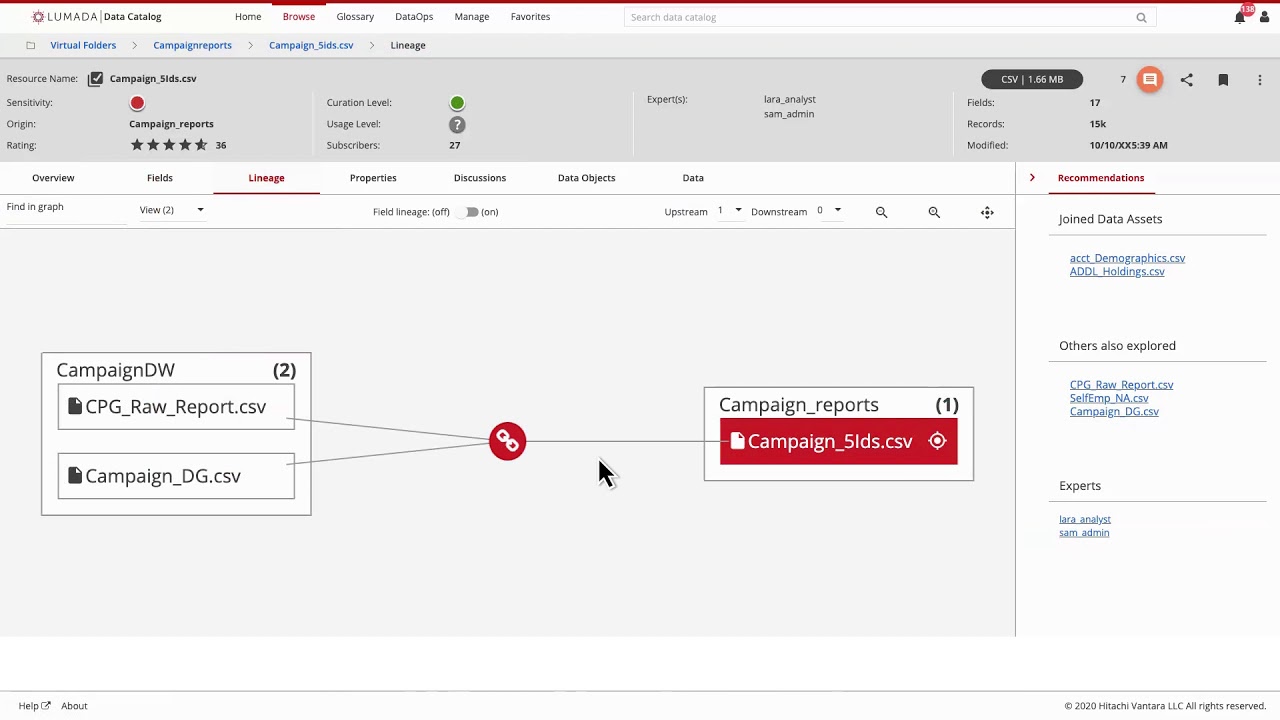
Lumada Data Catalog by Hitachi Vantara is an enterprise-grade cataloging tool with built-in data lineage, automated discovery, and machine learning-powered classification. Originally built on Waterline Data’s technology, it supports metadata unification across cloud and on-prem systems, with a focus on governance and data quality. While Lumada offers strong lineage through features like fingerprinting and pattern recognition, it’s often seen as less flexible and modern compared to newer, more user-friendly platforms. In 2025, it's favored by organizations already using Hitachi’s broader data infrastructure and looking for a governed, centralized metadata layer.
IBM InfoSphere Information Governance Catalog
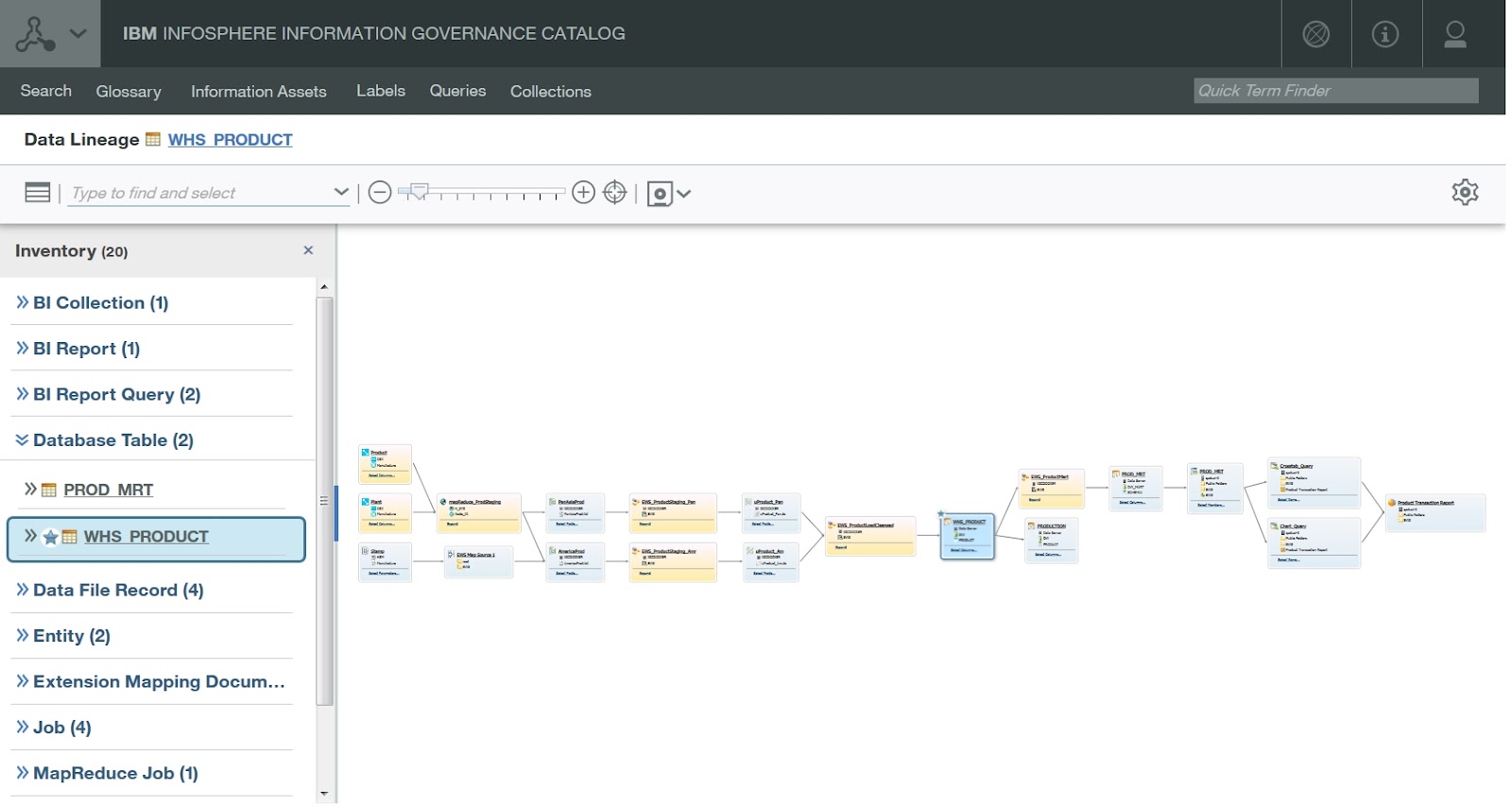
IBM InfoSphere Information Governance Catalog is a metadata management solution built to support data governance, lineage, and stewardship within complex enterprise environments. It offers detailed visualization of data relationships, supports business glossary creation, and integrates tightly with IBM’s broader data ecosystem. It’s more dated in its interface and requires significant technical expertise to maintain, making it better suited for legacy-heavy organizations with existing IBM infrastructure. In 2025, it’s still a trusted tool for companies in finance and healthcare that prioritize auditability and control.
MANTA
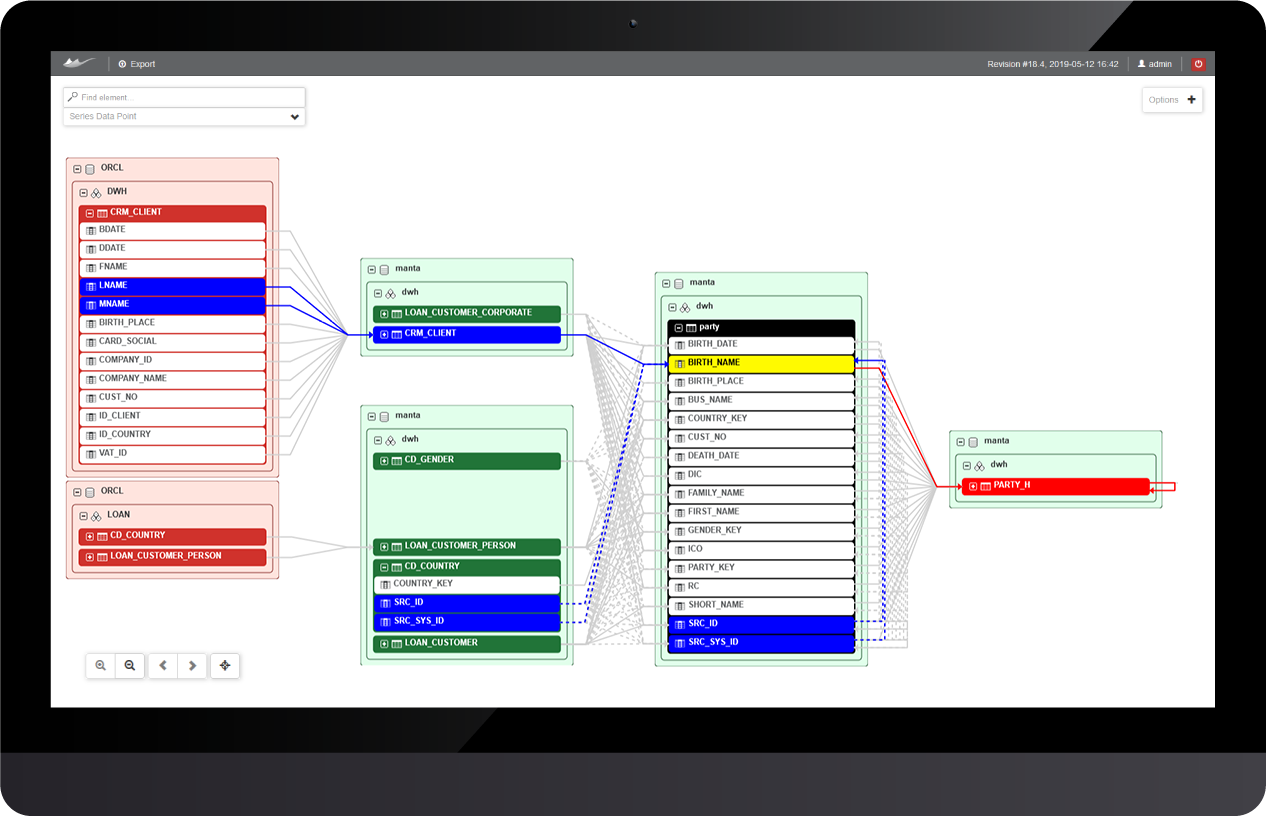
MANTA is a specialized data lineage platform that provides deep, automated lineage down to the column level across databases, ETL tools, and reporting systems. It’s designed to help teams perform impact analysis, ensure compliance, and improve data pipeline transparency with minimal manual effort. It excels in technical accuracy and depth, but is more widely adopted by engineering teams and less approachable for business users without additional layers or tools. In 2025, it’s a top pick for enterprises with complex pipelines that need precise, programmatic lineage across sprawling environments.
Precisely
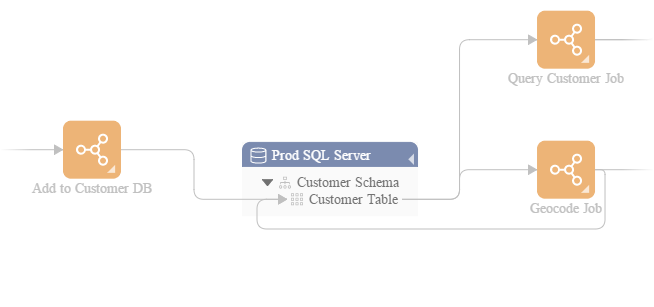
Precisely (formerly Syncsort) offers a metadata management solution that includes automated data lineage, cataloging, and data quality tools within a single platform. It uses AI and machine learning to tag assets, track data movement, and visualize relationships across environments. Precisely can be seen as less intuitive than newer tools and often caters to organizations already using its legacy data integration stack. In 2025, it's favored by companies with mainframe or legacy data systems that need lineage and governance without overhauling existing infrastructure.
Talend Data Catalog
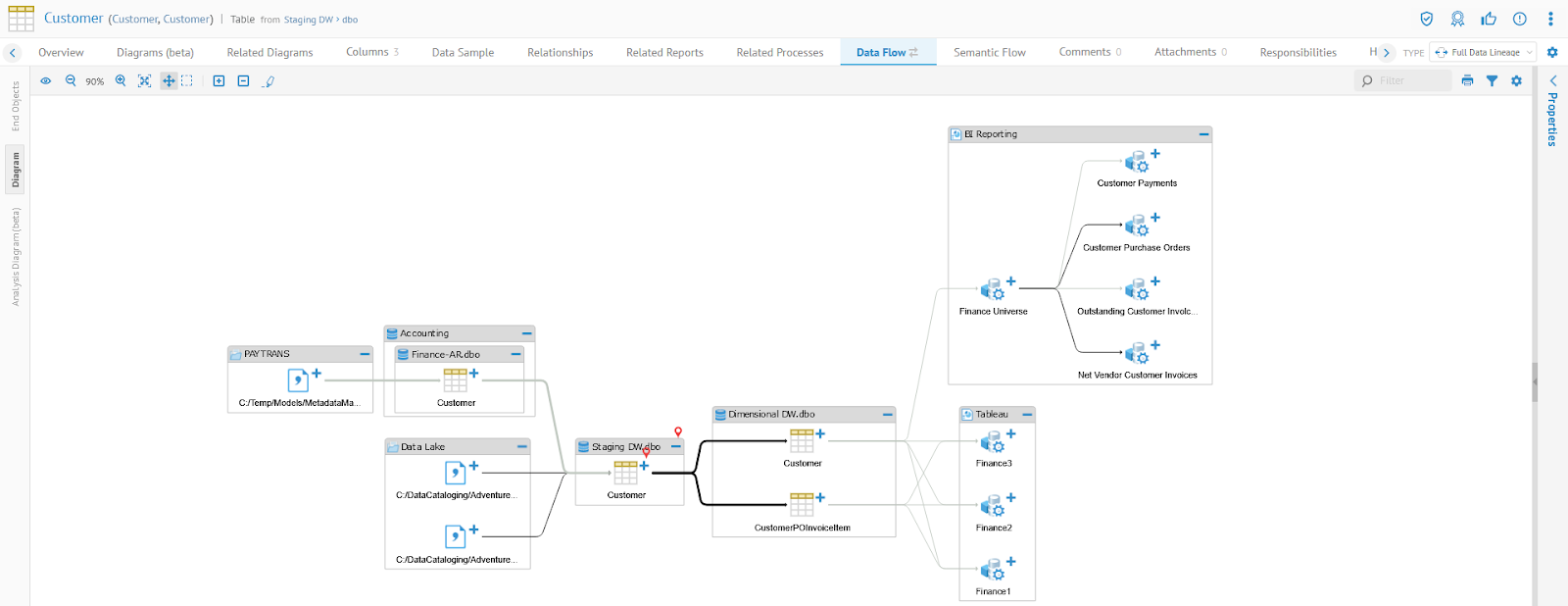
Talend Data Catalog is part of Talend’s broader data platform, offering automated data lineage, cataloging, and classification powered by machine learning. It provides end-to-end visibility across data pipelines, helping teams manage governance, security, and data quality from a central hub. Talend’s lineage features are most effective when used within the Talend ecosystem, limiting flexibility for teams with diverse toolchains. In 2025, it remains popular with mid-sized organizations already using Talend for integration or transformation and looking to expand into governance.
Atlan
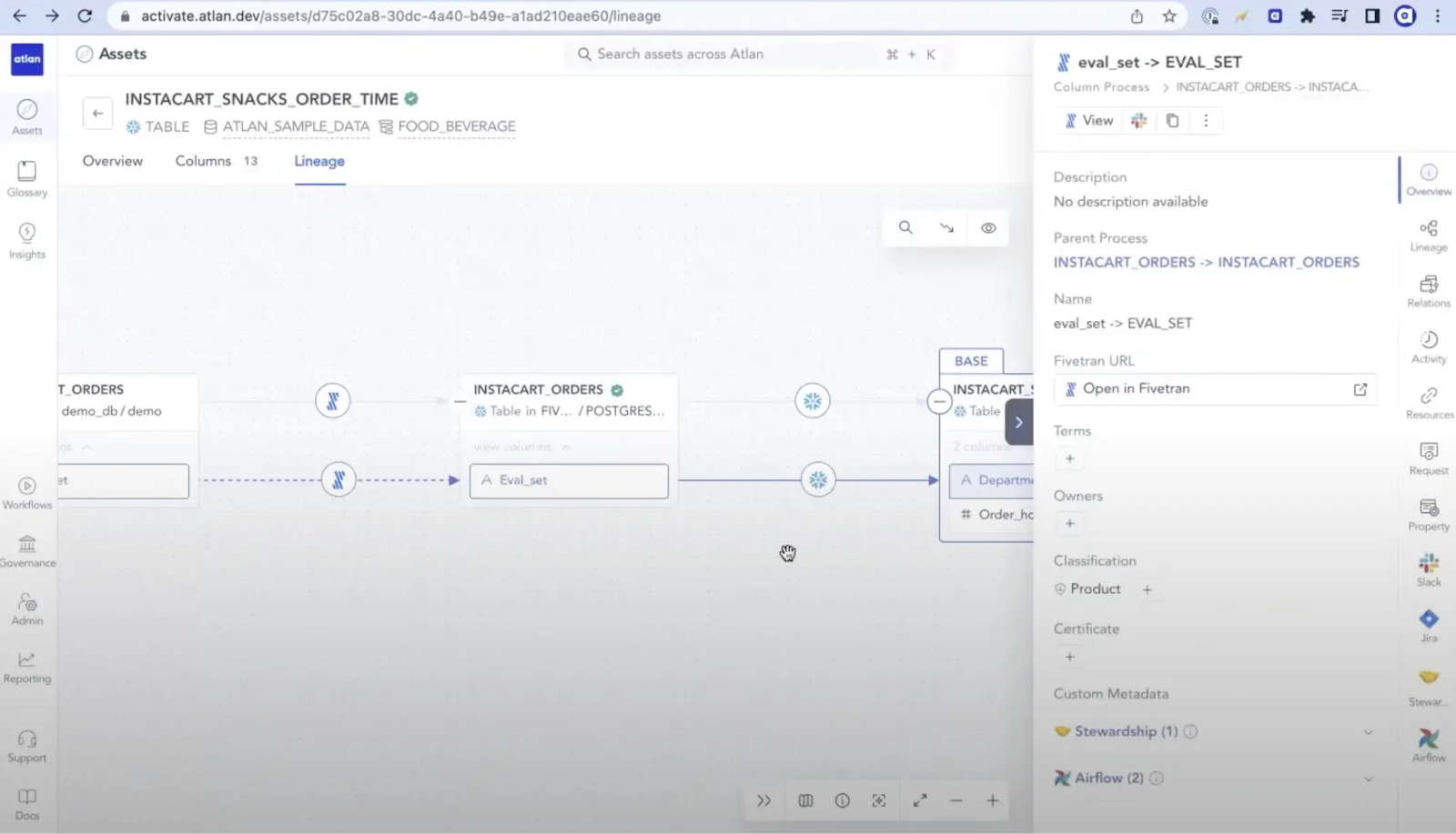
Atlan is a modern data catalog and collaboration platform that combines metadata management, lineage, and data documentation. It offers automated table-level lineage from tools like Snowflake, dbt, and Looker, along with Slack-style collaboration features designed for data teams. While Atlan is praised for its usability and governance workflow features, some teams find it difficult to roll out across the organization for team-wide adoption.
OpenMetadata + OpenLineage
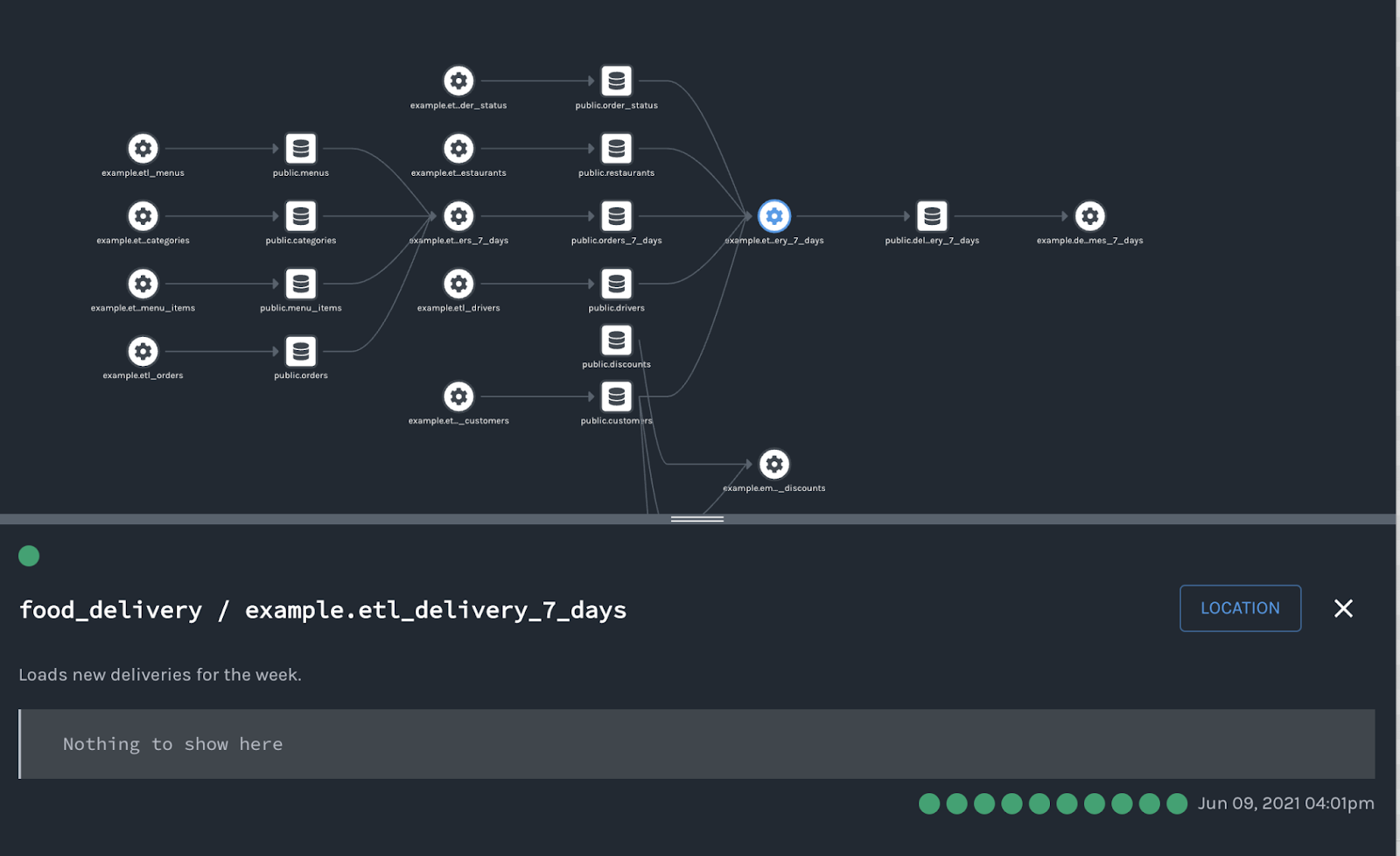
OpenMetadata + OpenLineage is a powerful open-source stack that delivers automated, end-to-end lineage tracking across modern data tools like Airflow, dbt, Spark, and Snowflake. OpenMetadata handles metadata cataloging, while OpenLineage provides standardized lineage collection through APIs and job instrumentation. While extensible and transparent, these tools often require significant engineering effort to set up, customize, and maintain. Because of this, they may be better suited for teams with strong technical capabilities. In 2025, they’re widely adopted by data platform teams at tech-forward organizations that want full control over their metadata and lineage infrastructure without vendor lock-in.
Tokern
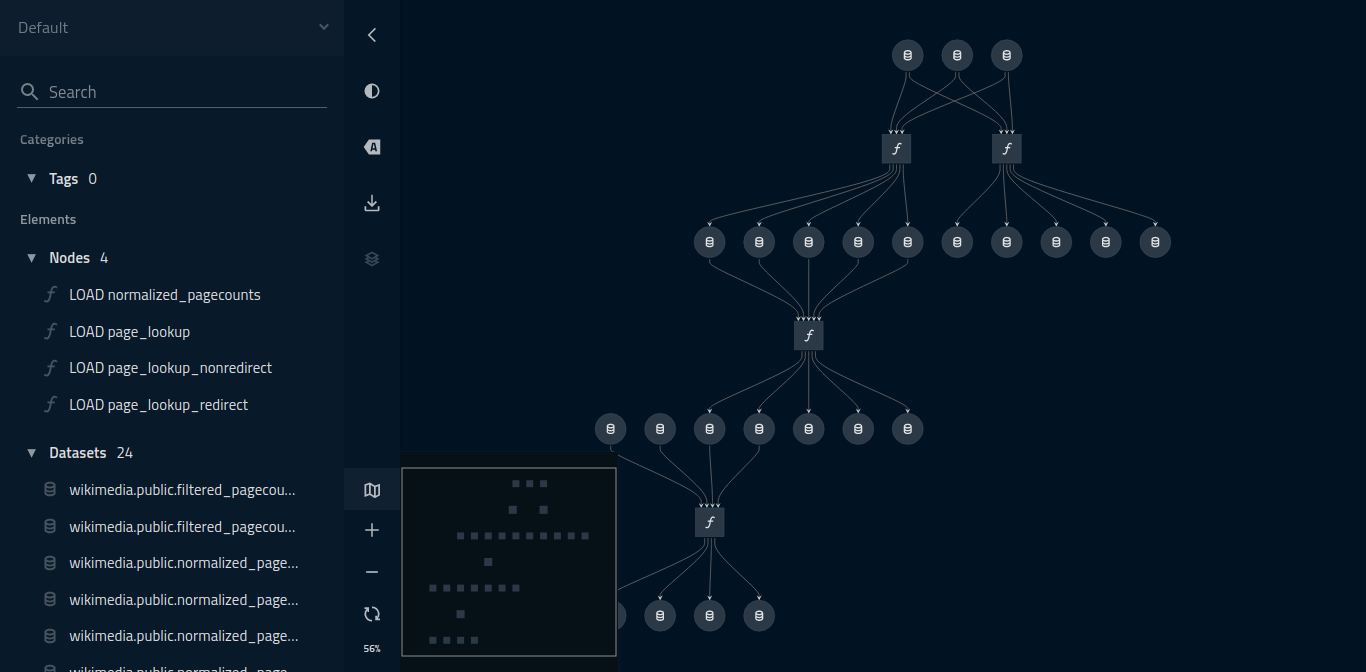
Tokern is a lightweight, open-source data lineage and governance tool designed to track data flows across SQL-based systems like Snowflake, BigQuery, and Redshift. It parses SQL to generate column-level lineage and integrates with dbt and Airflow for visibility into transformation pipelines. While Tokern is fast to deploy and easy to extend, it lacks the broader governance features and polished UI of more full-featured platforms. In 2025, it's popular among engineering teams looking for a simple, transparent way to add lineage to their stack without the overhead of enterprise tools.
Dremio
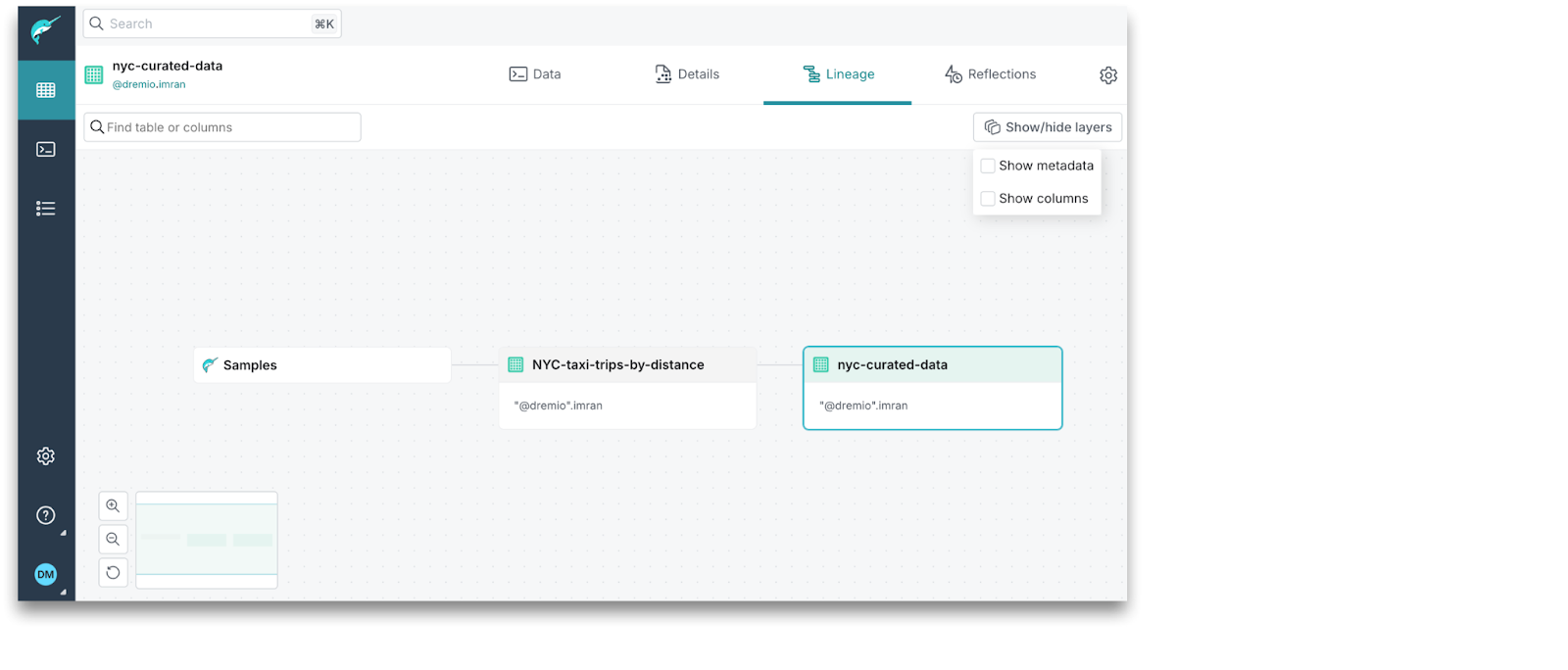
Dremio is a data lake engine and semantic layer platform that offers built-in data lineage to track how datasets are queried, transformed, and used across the organization. Its lineage features are integrated into its SQL Runner and metadata graph, providing context on data flows for analytics and BI users. While Dremio isn’t a dedicated lineage tool, its lineage capabilities are valuable for teams already leveraging its high-performance query engine on lakehouse architectures. In 2025, it’s favored by modern data teams that want fast analytics with basic, embedded lineage insights to support transparency and debugging.
OvalEdge
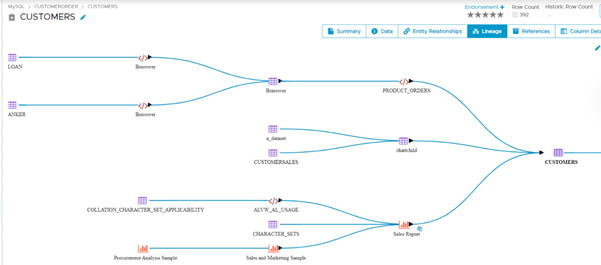
OvalEdge is a data governance and catalog platform that includes automated data lineage, data quality, and access management features within a single interface. It supports both technical and business lineage, offering visual maps and relationship graphs sourced from databases, ETL tools, and BI systems. Its interface and UX can feel dated compared to newer, design-focused platforms. In 2025, it's a solid option for mid-sized enterprises seeking an all-in-one governance solution with strong lineage capabilities and competitive pricing.
CloverDX
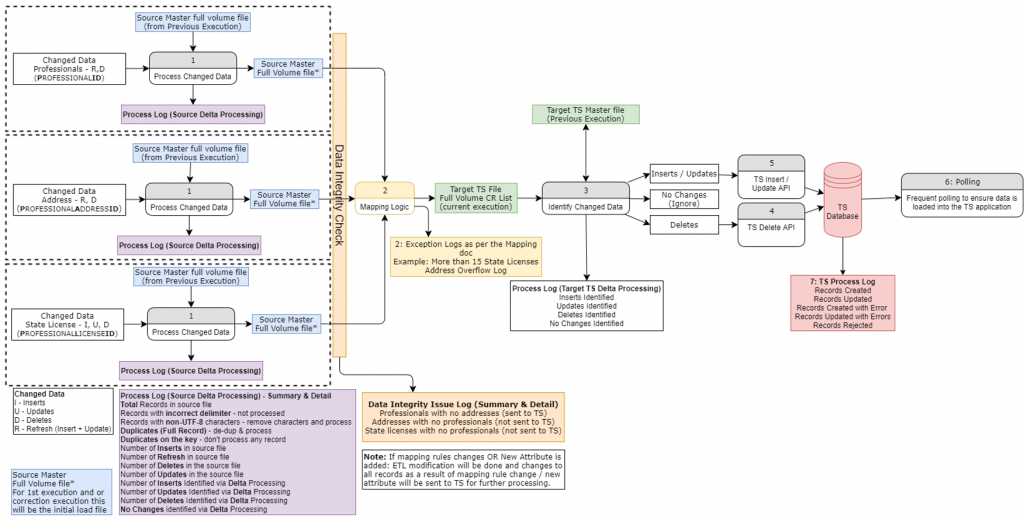
CloverDX is a data integration and transformation platform with built-in data lineage features that visualize data flows across pipelines and transformations. It’s known for its developer-friendly interface, allowing teams to build and debug complex workflows with clear traceability. CloverDX can feel too code-heavy for teams looking for low-code or business-friendly lineage tools. In 2025, it’s preferred by engineering teams that want tight control over data movement and visibility within custom ETL processes.
LINEAGEX
LINEAGEX is a lightweight, open-source Python library designed for extracting column-level data lineage from SQL scripts and visualizing it through interactive graphs. It focuses on simplicity and precision, making it easy to plug into existing analytics pipelines without heavy infrastructure. While it’s highly effective for parsing and visualizing SQL lineage, it lacks broader governance features like access control or metadata cataloging. In 2025, it’s a popular choice among data engineers and academics looking for a no-frills, scriptable solution to understand SQL data flows at a granular level.
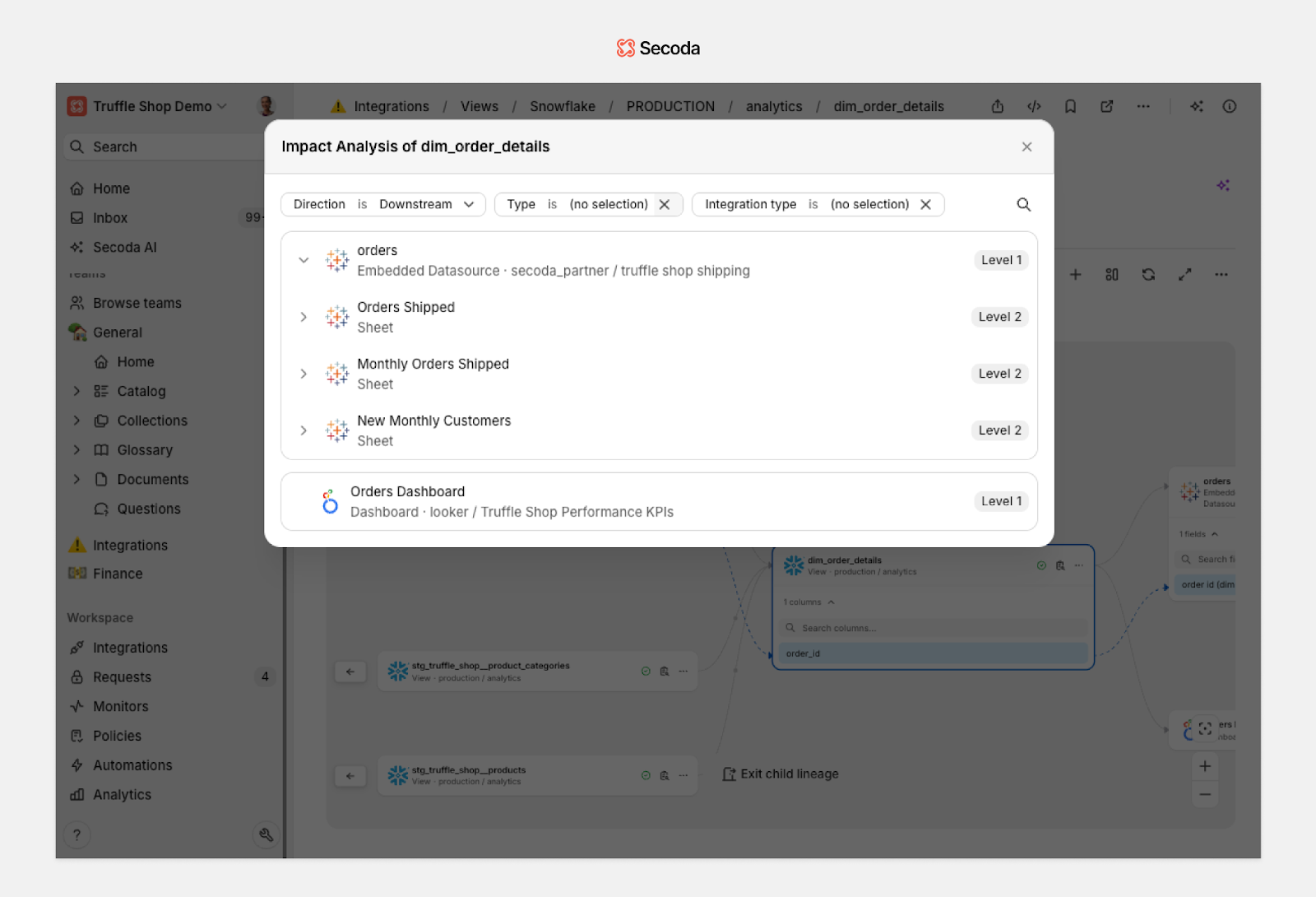
Final thoughts
Modern data lineage tools give teams the context they need to trust their data. By showing where data came from, how it’s been transformed, and where it’s used, lineage makes it easier to catch issues, understand dependencies, and make confident decisions.
As data moves through different systems, pipelines, and teams, historical context becomes critical. Lineage helps teams trace changes through migrations, updates, and transformations, so nothing gets lost along the way and data integrity stays intact.
By automating what used to be a manual process, lineage tools reduce the guesswork. Instead of digging through pipelines or relying on tribal knowledge, teams get a clear picture of what’s happening and where. That clarity leads to better insights, faster troubleshooting, and stronger collaboration across the business.
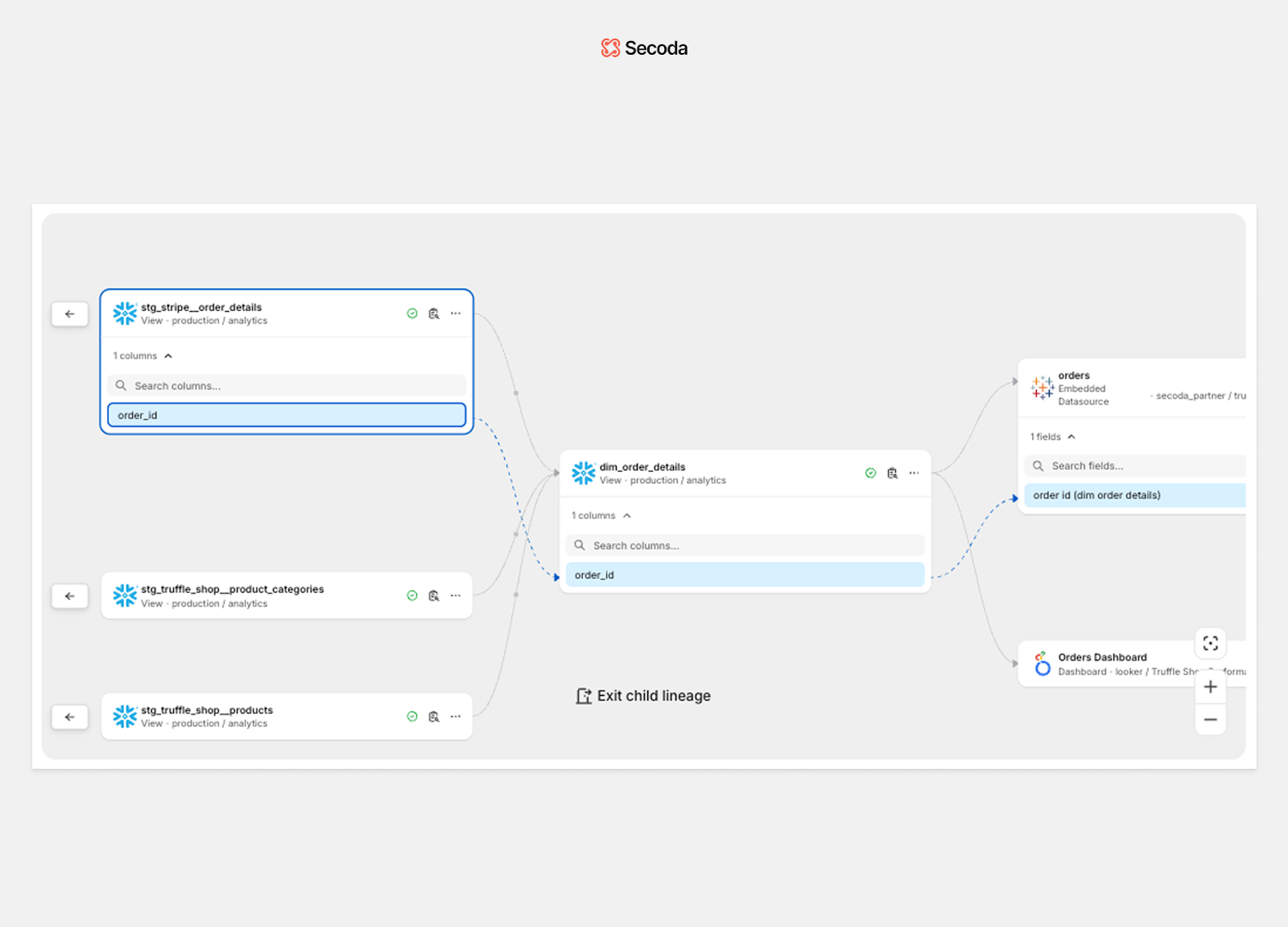
Secoda does this especially well by combining automated, column-level lineage with built-in monitoring, documentation, and AI, all in one platform. It’s just one of the ways Secoda helps teams save time and get ready for AI-powered analytics at scale. Try it today.






.png)
.png)








